Cultural Article
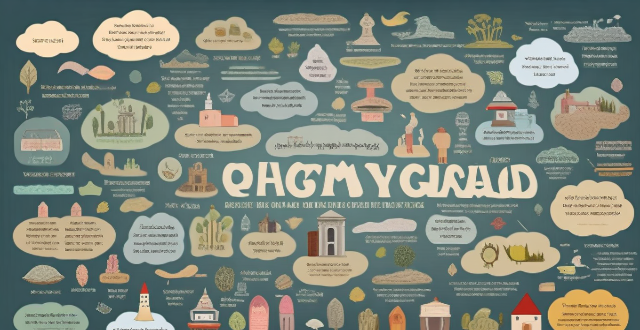
What role does media play in shaping our perception of cultural diversity ?
This article explores the significant role of media in shaping our perception of cultural diversity. It highlights how media exposure to different cultures, representation of cultural diversity, and influence on attitudes and beliefs contribute to understanding and appreciation of cultural diversity. The article encourages critical thinking and active seeking out of diverse perspectives to promote a more inclusive society.

Can cultural fusion lead to a loss of cultural identity ?
Cultural fusion, the blending of different cultures, has been a phenomenon for centuries. However, with globalization and the rise of social media, cultural fusion has become more prevalent than ever before. While it can lead to the creation of new and exciting cultural expressions, it can also raise concerns about the potential loss of cultural identity. This article explores whether cultural fusion can indeed lead to a loss of cultural identity by examining the benefits of cultural fusion, the potential loss of cultural identity, and ways to maintain cultural identity amidst fusion.

Can you recommend luxury resorts that offer unique cultural experiences ?
This article recommends several luxury resorts worldwide that offer unique cultural experiences. The Four Seasons Resort Bali at Sayan, Amangiri, Capella Ubud, The Brando, Como Shambhala Estate, Hacienda de San Antonio, and Mandapa, Ritz-Carlton Reserve are among the featured resorts. Each provides a blend of luxurious accommodations and immersive cultural activities such as dance classes, guided hikes, spiritual journeys, cooking classes, and more. These resorts are located in diverse settings, including jungles, deserts, mountains, and coastal areas, offering opportunities to explore local traditions, cuisine, history, and natural beauty.

What are the cultural challenges faced by international students ?
This article discusses the various cultural challenges that international students face when studying abroad, including language barriers, academic differences, social integration, daily life adjustments, and ethical dilemmas. It also provides coping strategies for overcoming these challenges, such as practicing the local language, participating in cultural exchanges, seeking mental health support, proactively communicating with professors and peers, and embracing differences with curiosity and openness. The author emphasizes that while these challenges can be daunting, they also offer valuable opportunities for personal growth and global understanding.

How does cultural fusion affect society's development ?
Cultural fusion is the process whereby different cultures influence each other over time. This phenomenon can have a significant impact on society's development in various ways. In this article, we will explore how cultural fusion affects society's development and discuss some examples of its effects. One of the most obvious benefits of cultural fusion is that it enhances diversity within a society. When different cultures come together, they bring with them unique perspectives, traditions, and values that can enrich the overall culture. This can lead to increased creativity, innovation, and social progress. Another benefit of cultural fusion is that it promotes tolerance and understanding among people from different backgrounds. By learning about and experiencing other cultures, individuals become more open-minded and accepting of differences. This can help to reduce prejudice, discrimination, and conflict within society. Cultural fusion also plays a crucial role in facilitating globalization. As cultures interact and exchange ideas, goods, and services, they become more interconnected and interdependent. This can lead to increased economic growth, trade opportunities, and international cooperation. While cultural fusion can bring many benefits to society, it also presents some challenges that must be addressed. These include loss of cultural identity, erosion of cultural heritage, and cultural imperialism. There are many examples of cultural fusion throughout history and around the world today. Some notable examples include food culture, music culture, and fashion culture.

What challenges do people face when participating in cultural exchanges ?
Cultural exchanges, while enriching, present challenges like language barriers, cultural differences, adjustment difficulties, stereotyping, legal and practical issues, and emotional strain. To overcome these, participants should be open-minded, patient, and willing to learn, with preparation through training, classes, and mentorship.
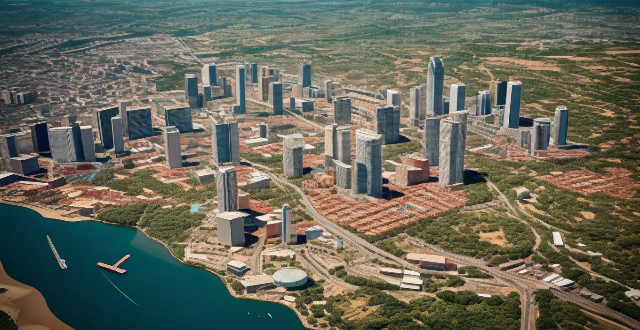
What are the benefits of embarking on a cultural exploration journey ?
Embarking on a cultural exploration journey is an enriching experience that offers numerous benefits, including expanding your horizons, enhancing communication skills, boosting creativity, developing cultural sensitivity, strengthening adaptability, building global awareness, forging lasting connections, and promoting personal growth and self-discovery.

How can we promote cultural diversity in our community ?
Promoting cultural diversity is crucial for fostering understanding and respect among people from different backgrounds. To achieve this, we can organize cultural events, promote multicultural education, encourage intercultural dialogue, support local businesses owned by diverse individuals, increase diverse representation in media, and promote cultural exchange programs. By embracing these strategies, we can create an inclusive and harmonious society where everyone feels valued and respected.

How can cultural fusion be promoted within multicultural communities ?
Promoting Cultural Fusion in Multicultural Communities emphasizes the importance of understanding and valuing diversity, fostering dialogue and exchange, promoting inclusion and equity, supporting cultural preservation and innovation, implementing policies and practices, and building partnerships and collaborations. These strategies aim to create a community where diverse cultures are celebrated and respected, leading to a richer and more innovative community life.
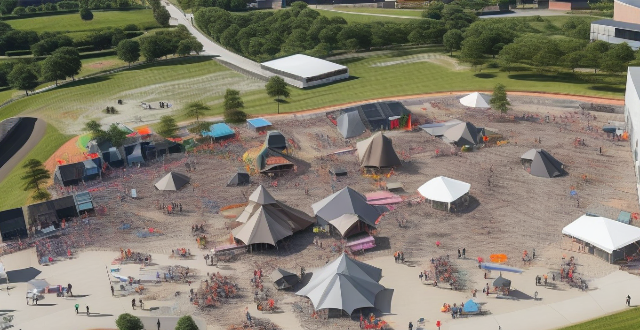
How do food festivals promote cultural diversity and understanding ?
Food festivals are significant events that promote cultural diversity and understanding by offering educational opportunities, exposing attendees to new flavors, building community, impacting the economy positively, providing entertainment, enhancing social media presence and awareness, and promoting sustainability initiatives. These festivals facilitate cross-cultural dialogue, break down cultural barriers, and encourage a shared appreciation for global cuisine.

How does South American music reflect its cultural diversity ?
South American music reflects the continent's cultural diversity through its rhythms, instruments, lyrics, and performance styles. The rhythm is characterized by complex patterns influenced by African, Indigenous, and European traditions. Traditional instruments like pan flutes and accordions hold cultural significance and provide unique sounds. Lyrics often convey narratives about history, social issues, and cultural traditions. Performance styles range from informal gatherings to large-scale events with elaborate costumes and choreography. Overall, South American music showcases the continent's vibrant culture while promoting understanding among different groups.
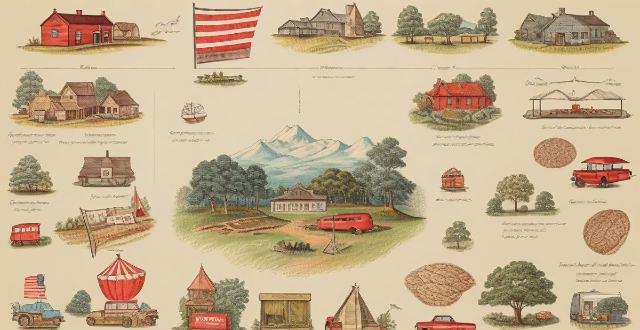
Which Asian countries should I visit for a cultural experience ?
Asian countries offer a diverse range of cultural experiences, including festivals, traditional practices, and historic landmarks. Recommended destinations include Japan's Kyoto and Tokyo, China's Beijing and Shanghai, India's Delhi and Agra, Thailand's Bangkok and Chiang Mai, Vietnam's Hanoi and Ho Chi Minh City, and South Korea's Seoul and Busan. Each country offers unique cuisine and activities for travelers seeking a rich cultural experience.

What is the relationship between cultural fusion and social acceptance ?
The text discusses the interplay between cultural fusion and social acceptance, two significant phenomena that shape modern societies. Cultural fusion is defined as the process where different cultures interact, leading to new cultural forms, while social acceptance refers to the degree of support for diversity within a society. The text outlines key points for each concept: diversity, innovation, and interconnectedness for cultural fusion; tolerance, empathy, and equality for social acceptance. It then explores their interaction, suggesting that cultural fusion can promote social acceptance by increasing exposure to different cultures, breaking down stereotypes, and promoting tolerance. Conversely, high levels of social acceptance can foster further cultural exchange and innovation. The conclusion emphasizes the cyclical relationship between the two concepts and their importance in building harmonious societies that embrace diversity and change.
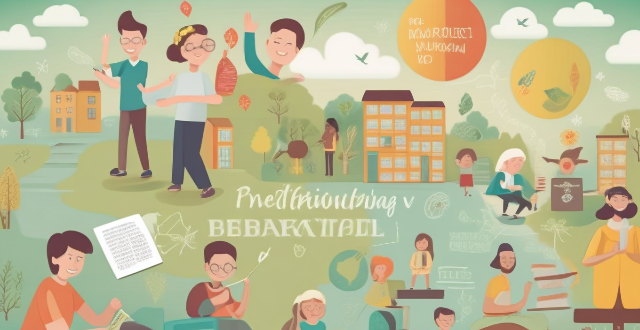
What is multicultural education and why is it important ?
This article defines multicultural education as an approach to teaching and learning that embraces the diversity of students' cultural backgrounds, experiences, and perspectives. It emphasizes the importance of incorporating multiple cultures into the curriculum, promoting equity and inclusivity, and fostering cross-cultural understanding and respect. The article highlights the key elements of multicultural education, including culturally relevant curriculum, equity and access, critical thinking, empathy, and global citizenship. It also explains why multicultural education is important, citing its role in promoting social justice and equality, enhancing cognitive development, preparing students for a global society, fostering empathy and tolerance, supporting personal identity formation, and contributing to academic achievement. The article concludes that multicultural education is essential for creating an inclusive learning environment that celebrates diversity, promotes social justice, and prepares students for success in a global society.
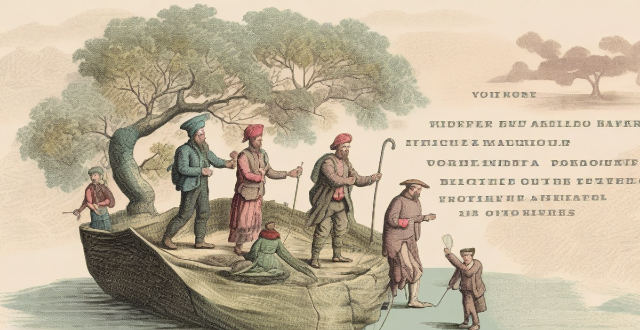
How do cultural beliefs and values influence attitudes towards climate change ?
Cultural beliefs and values play a significant role in shaping individuals' attitudes towards climate change. These cultural factors include worldviews, religious beliefs, social norms, historical experience, and education and awareness levels. Understanding these cultural influences can help promote actions that address climate change while respecting diverse perspectives.
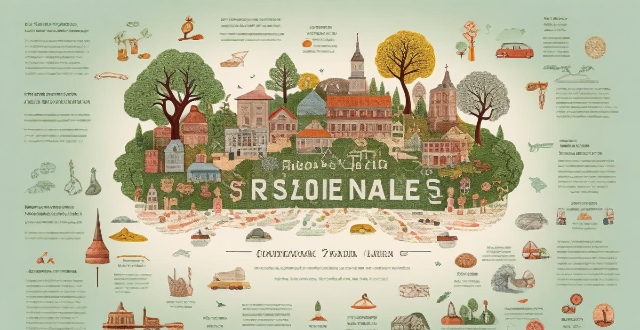
Is there a risk that cultural fusion could result in cultural homogenization ?
The text discusses the risk of cultural homogenization that comes with cultural fusion, which is the blending of different cultures. This process leads to the loss of distinctive features of individual cultures as they become increasingly similar due to globalization, migration, and other forms of cultural interaction. The phenomenon of cultural homogenization is characterized by the loss of heritage, dominance of global culture, and erosion of local practices. Several factors contribute to this, including globalization, mass media, migration, and economic influence. To mitigate the risk, it is essential to promote cultural preservation and exchange while discouraging the domination of any single culture. This can be achieved through supporting local cultures, cultural exchange programs, education, and policy measures.

In what ways do immigration policies affect the cultural diversity of a country ?
Immigration policies play a significant role in shaping the cultural diversity of a country. Policies that promote multiculturalism, facilitate family reunification, and provide opportunities for legal migration can enhance cultural diversity. In contrast, strict immigration controls, deportation policies, and anti-immigrant sentiments can hinder it.

How has technology impacted the process of cultural fusion ?
Technology has revolutionized the way we live, work, and communicate, significantly impacting cultural fusion. It has increased accessibility to different cultures through the internet, social media platforms, and messaging apps, leading to a greater exchange of ideas, beliefs, and practices between cultures. Online courses have made education more accessible than ever before, promoting understanding and appreciation of diverse cultures. Travel and tourism have been enhanced by technology through virtual tourism and navigation apps, allowing for greater engagement with local cultures during trips. Food blogging and social media platforms have played a significant role in promoting cultural fusion through cuisine, while online grocery shopping has facilitated the creation of authentic dishes from various parts of the world. Overall, technology has facilitated the exchange of ideas, beliefs, and practices between cultures, leading to greater levels of cultural integration in the future.

How can cultural exchange contribute to peace and harmony among nations ?
"Cultural Exchange: A Pathway to Peace and Harmony among Nations" explores the significance of cultural exchange in promoting peace and harmony globally. It outlines key benefits, including promoting mutual understanding, encouraging respect for diversity, building trust and friendships, facilitating dialogue and conflict resolution, supporting economic development and globalization, and fostering global citizenship. The article also provides practical examples of cultural exchange programs, emphasizing their role in creating a unified global community.

What is the impact of cultural exchange on globalization ?
This essay explores the impact of cultural exchange on globalization. It states that cultural exchange plays a crucial role in enhancing mutual understanding and respect among nations, promoting economic growth and development, fostering international collaboration and cooperation, encouraging tourism and travel, and preserving cultural heritage and traditions. The essay concludes that as our world becomes increasingly interconnected, cultural exchange will continue to play a vital role in shaping our future together.

What are the benefits and drawbacks of cultural fusion in education systems ?
Cultural fusion in education systems can enhance global awareness and improve intercultural communication, but it may also lead to a loss of cultural identity and stereotyping. To maximize its benefits, cultural fusion should be implemented thoughtfully and effectively.

What is cultural fusion and why is it important ?
The text discusses cultural fusion, which is the blending of different cultural elements from various backgrounds. This process involves exchange, adaptation, and integration of traditions, customs, languages, cuisines, arts, etc. Cultural fusion is important because it promotes diversity and inclusivity, drives innovation and creativity, facilitates global understanding and peace, enhances economic opportunities, and supports sustainable development. It is essential for promoting harmony, innovation, and sustainability in an increasingly interconnected world.

What are some must-visit cultural sites around the world ?
Culture is an integral part of our lives, and visiting cultural sites around the world can be a life-changing experience. Here are some must-visit cultural sites that you should consider adding to your travel bucket list: 1. The Great Wall of China 2. Machu Picchu, Peru 3. Angkor Wat, Cambodia 4. Taj Mahal, India 5. Colosseum, Italy

How can we overcome language barriers in cultural exchange ?
Strategies for overcoming language barriers in cultural exchange include learning basic phrases, using technology, being patient and respectful, practicing active listening, and seeking out cultural exchange opportunities.

What role does cultural fusion play in globalization ?
Cultural fusion plays a significant role in globalization by enhancing cross-cultural understanding, promoting innovation and creativity, facilitating economic growth, and enhancing tourism experiences. It refers to the blending of different cultures, traditions, and practices from various parts of the world. This process has become increasingly important as globalization continues to bring people closer together through trade, travel, and communication technologies.

How do sports exchange programs contribute to cultural awareness and appreciation among youth ?
Sports exchange programs offer young athletes a platform to engage in cultural exchanges and foster cultural awareness and appreciation. These programs expose youth to different cultures, promote language learning, and include cultural exchange activities that break down cultural barriers. Additionally, sports exchange programs celebrate diversity, build lasting friendships, and encourage the embrace of cultural differences, contributing to a more harmonious global community.

How does cultural sensitivity affect the implementation and success of women-oriented aid projects ?
Cultural sensitivity is crucial for the success of women-oriented aid projects, which involve understanding and respecting the cultural beliefs and practices of the target community. Implementation strategies include researching the cultural context, avoiding stereotypes, adapting to local customs, building trust with community leaders, collaborating with local women, designing culturally appropriate programs, providing training, monitoring progress, and adjusting strategies as needed. These steps help ensure that aid projects effectively meet the needs of local women and improve their lives.

What should I pack for a cultural exploration journey ?
When embarking on a cultural exploration journey, itWhen embarking on a cultural exploration journey, it that will enhance your experience and it is important to pack items that will enhance your experience and ensure your comfort throughout the trip. Essential items include comfortable walking shoes, lightweight clothing, culturally appropriate attire, camera, portable charger, travel adapter, sunscreen, insect repellent, basic toiletries, reusable water bottle, daypack, and travel journal. Research the specific needs and customs of the culture you will be visiting to tailor your packing list accordingly.
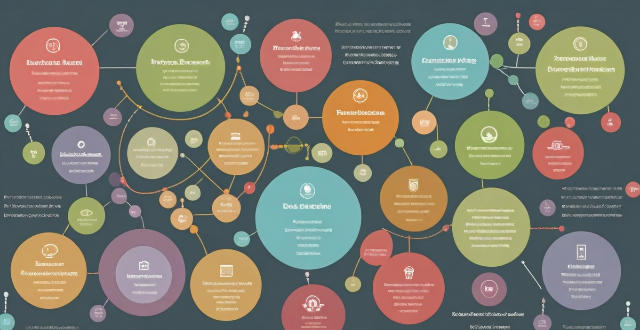
How does cultural sensitivity impact the delivery and reception of personal safety training ?
Cultural sensitivity is crucial in personal safety training as it ensures accessibility, relevance, and effectiveness for all participants regardless of their cultural background. It makes the training more accessible by considering factors such as language barriers, religious practices, and cultural norms. Cultural sensitivity ensures that the training is relevant to the needs and experiences of all participants by understanding the unique challenges faced by different cultural groups. It enhances the effectiveness of personal safety training by fostering trust, empathy, and understanding among participants. To create a culturally sensitive personal safety training program, conduct a needs assessment, involve diverse stakeholders in the design process, train inclusive facilitators, create an inclusive learning environment, and evaluate and refine your program regularly.

What challenges do athletes from different cultural backgrounds face when competing in foreign countries ?
Athletes from different cultural backgrounds face challenges when competing in foreign countries, including language barriers, cultural differences, time zone changes, and homesickness. These issues can affect performance, mental state, and overall experience during competition. Overcoming these challenges requires resilience, adaptability, and a strong support system.